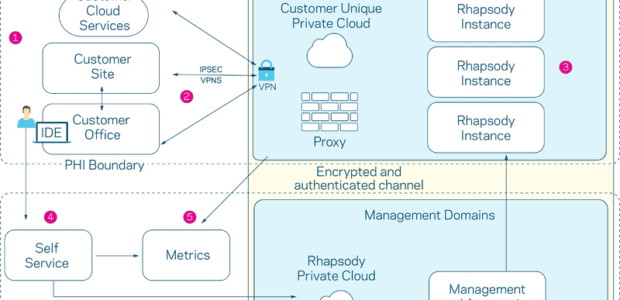New Report
State of Interoperability Report: A strategic framework enabling AI-ready healthcare through interoperability
Guides, White papers
Rhapsody’s State of Interoperability Report shows interoperability remains the top barrier to scaling AI across healthcare.
Market segment
Resource type
Region
Product
Topics

Blogs
Proper terms, descriptions, versions, and even mapping from one code set to another can help providers quickly and accurately assess existing EHR data.
Read More >
Blogs
This is the problem that Amazon was struggling with as they built out their e-commerce platform, and when they solved it they found that they had created a cloud computing solution called AWS that could help any organization manage its IT infrastructure.
Read More >
Blogs
In my previous blog, readers went through the exercise of mapping from the database to the resources that they are going to need. The scenario was simple (though it won’t always be this way) but there are still a few more items to cover
Read More >
Blogs
Reduce processing time and deliver batch files in a usable format using Corepoint Batch Processing
Read More >
Blogs
UnityPoint Health Q&A: Building and supporting interfaces with Corepoint Integration Engine
Read More >
Blogs
UnityPoint Health Q&A: A more productive team
Read More >
Blogs
UnityPoint Health Q&A: Impact of an integration engine on patient care
Read More >
Blogs
Outages mean patient data stops moving and is unavailable for caregivers. Corepoint Health's high availability features keep the data flowing.
Read More >
Blogs

To answer a number of the questions about the architecture of RaaS, we have compiled a high-level overview to explain how RaaS connects to an organization.
Read More >